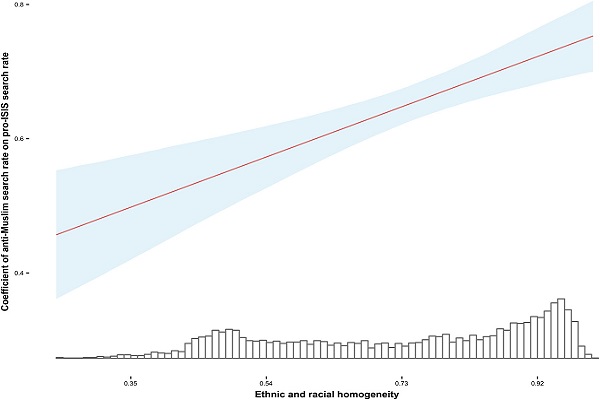
Study Finds Islamic Extremism is Higher in Areas with Strong anti-Muslim Sentiment
- By Kelly Frazier --
- 12 Jul 2018 --

Anti-Muslim discrimination is linked with radicalization.
Science Advances magazine has published a study that found a connection between radicalization and anti-Muslim hate in the United States.[/tweetit] Researchers feeding the article have gone through extreme homogeneous and poor American population pockets. The findings point out that radicalization is an outgrowth of religious, ethnic or racial discrimination. The study showed only ethnic diversity could stem the growth of hatred. People living in diverse communities are found to be much less prone to fight another group which they know on personal terms. The study was conducted by sociologists from Duke University who partnered with a statistician from the University of California.
Study Finds Islamic Extremism is Higher in Areas with Strong anti-Muslim Sentiment[/tweetthis]
Researchers examined Google-provided internet data generated from 3,099 counties dispersed all over the United States. They went through the median monthly search data to find whether individuals living in the same geographical location searched for definite phases related to joining any Islamic terrorist organization or anything concerning the violent nature of Muslims. The collected data was from the August 2014 to July 2016 period. The findings showed that Islamic extremism is found more in areas which also contain extreme anti-Muslim sentiment.
A comparable physical study was difficult to perform as few extremists would openly identify themselves as radicals in such surveys. Similarly, Islamophobes would hide themselves during surveys to avoid social stigma. The Internet, however, provides full anonymity to any person if so desired. Researchers thus went online to find out what people really thought about this sensitive and controversial subject. A comparatively objective measurement could thus be found. The online study method also has a few limitations. Google itself does not permit range estimates for specific search engine phrases like “How to join ISIS.” This restricts further internet search study.

The study revealed some disturbing facts. Radicalization is the direct fallout of ethnic integration failure. This further fuels inter-group prejudice in the communities. Extremists find fertile ground in such communities to increase their kind. Second generation immigrants suffer from a disconnect between their own heritage and the society they live in. These gaps fuel extremist narratives. Prejudice against Muslims was found to be specifically high in homogeneous communities composed predominantly of one ethnic community. Such communities have a predominantly white population with darker skinned minorities like Muslims sticking out of the non-existent mix. The minds of those who reside in such population pockets have a “them” and “us” perception.


















